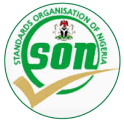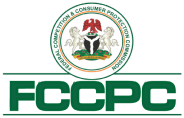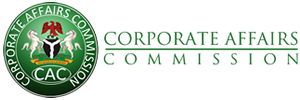NAFDAC as a critical stakeholder in the health sector, is mandated to regulate and control the importation, exportation, manufacture, advertisement, distribution, sale, and use of food, drugs, cosmetics, medical devices, packaged water, detergents and chemicals. (Regulated products)
NAFDAC has collaborated and continues to collaborate with NHIA to ensure a sustainable access to affordable and acceptable quality medicines for our citizens
The Executive Order 3 (EO3) on support for local content in public procurement by the Federal government requires that All MDAs shall grant preference to local manufacturers of goods and service providers in their procurement of goods and services.
It was based on this collaboration with NAFDAC and in line with Executive Order 3 (EO3), that NHIA worked with Local Pharmaceutical Manufacturers whose manufacturing facilities have been approved by NAFDAC as meeting Good Manufacturing practice (GMP) requirements for the procurement of needed medicines. These manufacturing companies have also had their products registered by NAFDAC. This means that all the attributes of quality, safety and efficacy pertaining to these products have been duly assured by NAFDAC.
The Federal Government has just launched the operational guidelines for the 2022 National Health Insurance Authority Act as part of efforts to ensure all Nigerians have access to affordable healthcare services.
The operational guidelines are crucial to clarifying the roles, responsibilities, and obligations of various stakeholders in the health sector because access to affordable quality health care for all Nigerians is key on the path to achieving Universal Health Coverage.
NAFDAC carries out this mandate by ensuring appropriate documentation of product attributes (Dossier Assessment), conducting inspections of manufacturing facilities to ensure they comply with good manufacturing practice (GMP) requirements, laboratory evaluation of products to ensure compliance with quality attributes, granting marketing authorization, conducting post marketing surveillance to monitor products on the market for continued compliance with quality and safety requirements among others.
NAFDAC has in the past five years developed a GMP Roadmap which continuously assures that pharmaceutical manufacturers in Nigeria remain compliant with global best practices. The GMP roadmap was designed to guide and help local manufacturers upgrade their facilities and procedures in line with current good manufacturing practice requirements. This initiative has enabled the Agency establish a baseline for monitoring compliance.
The National Health Insurance Authority (NHIA) signed a Memorandum of Understanding (MoU) with Pharmaceutical Companies and Drugs Management Organisations (DMOs) for production of 33 different drugs to address the perennial problem of out-of-stock syndrome in the nation’s health facilities.
Under the initiative, 12 Pharmaceutical companies will be branding 33 products for the health insurance ecosystem in the first phase. Already, NHIA has chosen seven states (Delta, Enugu, Gombe, Jigawa, Niger, Osun and Sokoto states) and the Federal Capital Territory (FCT) for the pilot phase of this initiative.
The initiative is also geared towards strengthening Local Pharmaceutical manufacturers, which will ultimately guarantee medicines security. This drive to guarantee medicines security has been a deliberate and intentional effort by NAFDAC in the past five years and continues to be on the front burner to ensure that pharmaceutical manufacturing facilities are fit for purpose. This will help to reduce the proliferation of substandard and falsified medical products
The categories of drugs involved will start from simple to complex, which will be used to address prevailing health conditions in Nigeria, such as malaria, upper respiratory tract infections, childhood illnesses and drugs being used by pregnant women.
As mentioned earlier, every drug to be manufactured will be certified and approved by the National Agency for Food and Drug Administration and Control (NAFDAC)- in terms of quality, safety and efficacy.
The medicines will be tested in the WHO-Prequalified NAFDAC Laboratory. Also, as part of its Post Marketing Surveillance activities, NAFDAC will continue monitoring to ensure that these branded medicines are used exclusively in the nation’s health care facilities. They are not to be found on the shelves for sale.
The branding of NHIA medicines and other health products was introduced as a way to help eradicate out-of-stock syndrome, as well as ensure quality of its medicines. The 33 drugs would be branded with NHIA inscription under the National Health Insurance Authority. NAFDAC, through the Directorate of Registration and Regulatory Affairs will also ensure that appropriate and adequate labelling of the medicines are met in line with the Agency’s labelling requirements and in accordance with NHIA guidelines
NAFDAC will continue to collaborate with NHIA to ensure that the terms spelt out in Executive Order 3(EO3) will to be implemented to enable the attainment of Universal Health Coverage as specified in the National Drug Policy.
Thank You
Prof. Mojisola Christianah Adeyeye Ph.D, FAS
Director General






